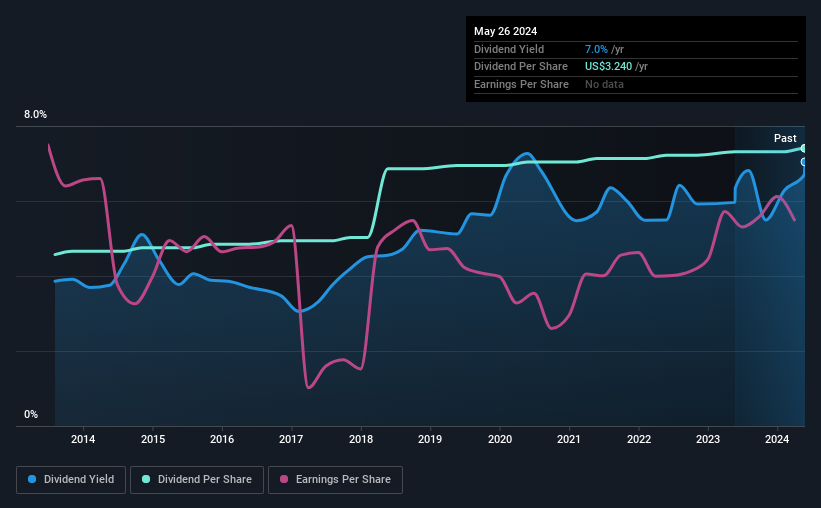Universal (NYSE:UVV) Is Increasing Its Dividend To $0.81
Universal Corporation (NYSE:UVV) will increase its dividend from last year's comparable payment on the 5th of August to $0.81. Based on this payment, the dividend yield for the company will be 7.0%, which is fairly typical for the industry.
Check out our latest analysis for Universal
Universal's Payment Has Solid Earnings Coverage
Unless the payments are sustainable, the dividend yield doesn't mean too much. Based on the last payment, Universal's earnings were much higher than the dividend, but it wasn't converting those earnings into cash flow. Since a dividend means the company is paying out cash to investors, this could prove to be a problem in the future.
Over the next year, EPS could expand by 3.3% if recent trends continue. Assuming the dividend continues along recent trends, we think the payout ratio could be 68% by next year, which is in a pretty sustainable range.
Universal Has A Solid Track Record
Even over a long history of paying dividends, the company's distributions have been remarkably stable. Since 2014, the dividend has gone from $2.00 total annually to $3.24. This works out to be a compound annual growth rate (CAGR) of approximately 4.9% a year over that time. Dividends have grown relatively slowly, which is not great, but some investors may value the relative consistency of the dividend.
Dividend Growth May Be Hard To Achieve
Investors could be attracted to the stock based on the quality of its payment history. However, Universal has only grown its earnings per share at 3.3% per annum over the past five years. Growth of 3.3% per annum is not particularly high, which might explain why the company is paying out a higher proportion of earnings. This isn't bad in itself, but unless earnings growth pick up we wouldn't expect dividends to grow either.
In Summary
Overall, we always like to see the dividend being raised, but we don't think Universal will make a great income stock. While Universal is earning enough to cover the payments, the cash flows are lacking. We don't think Universal is a great stock to add to your portfolio if income is your focus.
Market movements attest to how highly valued a consistent dividend policy is compared to one which is more unpredictable. Meanwhile, despite the importance of dividend payments, they are not the only factors our readers should know when assessing a company. Case in point: We've spotted 2 warning signs for Universal (of which 1 shouldn't be ignored!) you should know about. Is Universal not quite the opportunity you were looking for? Why not check out our selection of top dividend stocks.
Have feedback on this article? Concerned about the content? Get in touch with us directly. Alternatively, email editorial-team (at) simplywallst.com.
This article by Simply Wall St is general in nature. We provide commentary based on historical data and analyst forecasts only using an unbiased methodology and our articles are not intended to be financial advice. It does not constitute a recommendation to buy or sell any stock, and does not take account of your objectives, or your financial situation. We aim to bring you long-term focused analysis driven by fundamental data. Note that our analysis may not factor in the latest price-sensitive company announcements or qualitative material. Simply Wall St has no position in any stocks mentioned.

 Yahoo Finance
Yahoo Finance 
